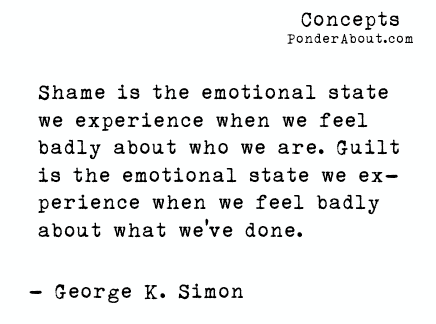“Procrastination is not merely a curious human aberration, one of the many instances in which people failed to pursue their interest in an efficient and productive manner. It represents a dysfunction of human abilities that are important, if not essential, for coping with the myriad tasks, major or minor, that accumulate daily on our desks, in our memo books or in our minds…When we procrastinate we waste time, miss opportunities, and do not live authentic lives.” [Milgram, N.: 1991]
Recently I have been procrastinating with work related stuff and have been lazy, which has made me feel guilty. So I decided to overcome the feeling of guilt I feel on daily basis (and make myself stop the procrastinating) by exploring it. And what better way than a blog post.
Obviously, the feeling of guilt does not come only from simple things like procrastination. So, before writing up this blog post, I decided to do my own little research on reasons that make people feel guilty. I started off with asking: “What makes you feel guilty on daily basis”? I asked this to my friends on Facebook and followers on Twitter and later I decided to get in touch with couple of people that inspire me. The answers surprised me in the variety of reasons and also levels of guilt. So this made me look up academic definitions and research on levels of guilt.
What is guilt?
Encyclopedia of Psychology (2007) explains that guilt is: “A cognitive or an emotional experience that occurs when a person realizes or believes—accurately or not—that he or she has compromised his or her own standards of conduct or has violated a moral standard, and bears significant responsibility for that violation.”
F.Perls in “Ego, Hunger and Aggression: a Revision of Freud’s Theory and Method” (1951) argues that one of the earliest stages of “guilt” is determined by a break up or violation of rules that we have adopted internally as our personal standards. Author defines guilt as the feeling of self-punishment or “a vindictive attitude towards oneself” (p. 127). Perls argues that guilt is the awareness of contradiction of actions and morals. In short – guilt is a result of “failing” yourself or your principles.

In my life, guilt takes various forms and levels, so to say. I might feel a little guilty for skipping gym or having a late midnight snack, but I feel a lot more guilty when I give into pressure or fail to do something I have strongly decided to do. But can we measure guilt? And if we can, how? Is there one measure for all of us to asses how guilty we are? And if there is, does it change when our guilt involves interpersonal communication? And when does the feeling of guilt turn into the feeling of shame?
There have been several scientists that have tried to get to the bottom of guilt and shame, some of them base it on emotional expression, but never completely separated them (i.e. Darwin, who did the research observing his own son), some of them would turn away from this approach and instead give a greater importance to emotional experience that a person goes through while experiencing guilt or shame (i.e. Lange and James [1922] or Freud [1923]). However, one scientist (H.B. Lewis) decided to take it to the next level and pay a greater attention to the difference between the two. Her work was used to create the classic distinction between shame and guilt that is used now.
“The experience of shame is directly about the self, which is the focus of evaluation. In guilt, the self is not the central object of negative evaluation, but rather the thing done or undone is the focus [..]” [H.B. Lewis, p.30, 1971]
So basically, as always we return to self evaluation, principles and identity of one. I am not going to go deep into psychology or exploring the terms as I think this sums it up perfectly:
So, why the post about guilt when starting a new year? Because for the last 8 months I have put aside lots of the things I love, lots of the things that made me feel alive and I feel tired. But above this weird tiredness and routine hangs an amazing amount of guilt. Guilt about not doing things. And I guess it is better to get it all out here before it turns into shame. Before I feel bad about myself not the things I have (haven’t) done.
As the year turns a new page in us all (or at least we like to pretend it does, so we keep this one point of countdown when supposedly things are about to change) I have turned back to what makes me happy – writing (hopefully, this won’t be the last post), traveling, photography and generally just making time for myself in the middle of the crazy wheel I keep running in like a hamster. I have made the first steps towards a more happy, more alive me. Let’s hope it stays that way.
To finish off, whenever I think about guilt or shame I remember this:
Further readings:
- Heidy Lee Eire “The Shame and Guilt Inventory: Development of a new scenario-based measure of shame and guilt-proneness.” [Dissertation – available on Academia.edu]
- T.R. Cohen, S.T. Wolf, A.T. Panter, C.A. Insko “Guilt and Shame proneness scale [GASP]” [Available online]
- L.E. O’Connor, J.W. Berry, J. Weiss, M. Bush, H. Sampson “Interpersonal guilt: The Development of a New Measure” [Available online]
- S. Freud “Civilisation and It’s Discontents” [1929]
- M. Lewis, J.M. Haviland-Jones, L. Feldman Barret “Handbook of Emotions: Third edition” [Available online]
